Introducing our 2025 Storytelling with Gender Data Fellows!
At Equal Measures 2030, we believe that data can expose inequality and injustice, motivate change, and drive accountability. But for data to be transformative, it must be accessible and actionable to those working at the forefront of change. In our mission to secure a gender-equal future for all, we believe it’s fundamental to connect data and evidence with advocacy and action on gender equality.
Yet, too many gender advocates, activists, and policymakers still don’t have easy access to the data they need, or struggle to see how global gender statistics connect to their lived realities and local challenges. When data remains abstract or disconnected, it doesn’t get used to push for policy change, mobilize communities, or hold leaders accountable.
Supporting feminist movements with strong, accessible data, strengthens their demands, giving them the evidence needed to challenge harmful policies, push for better laws, and hold decision-makers accountable. Access alone isn’t enough — advocates also need the skills to interpret data and transform numbers on a spreadsheet into compelling stories that inspire action and demand action.
To bridge this gap, we created the 2025 Storytelling with Gender Data Fellowship. This six-month program is designed to help gender advocates see data as a tool they can wield—one that strengthens their storytelling, fuels their activism, and makes their demands for change impossible to ignore.
Kicking off in April, the fellowship brings together 10 advocates from across Africa, Asia, Latin America, and the Caribbean. For us, it’s not just about amplifying stories—it’s about shifting who gets to tell them and how they are told. Through hands-on workshops and dedicated support from EM2030 and peers, our fellows will learn how to craft data-driven narratives, visualize statistics in compelling ways, and tailor their messages for different audiences. We’ll support them in bringing their ideas to life through the creative storytelling formats that inspire them most.
Over the next six months, our fellows will harness the power of gender data to craft compelling stories that drive change. Each of them brings a unique perspective, passion, and vision for how data can illuminate critical gender issues. In their own words, here’s why storytelling with gender data matters to them—and the focus of their work in the fellowship:
Agnes Angule, Kenya
During the fellowship, I aim to explore how gendered barriers to digital inclusion among women in Kenya limit their economic opportunities. I hope to amplify their experiences and advocate for more inclusive digital policies by combining data visualization, personal narratives, and multimedia storytelling.
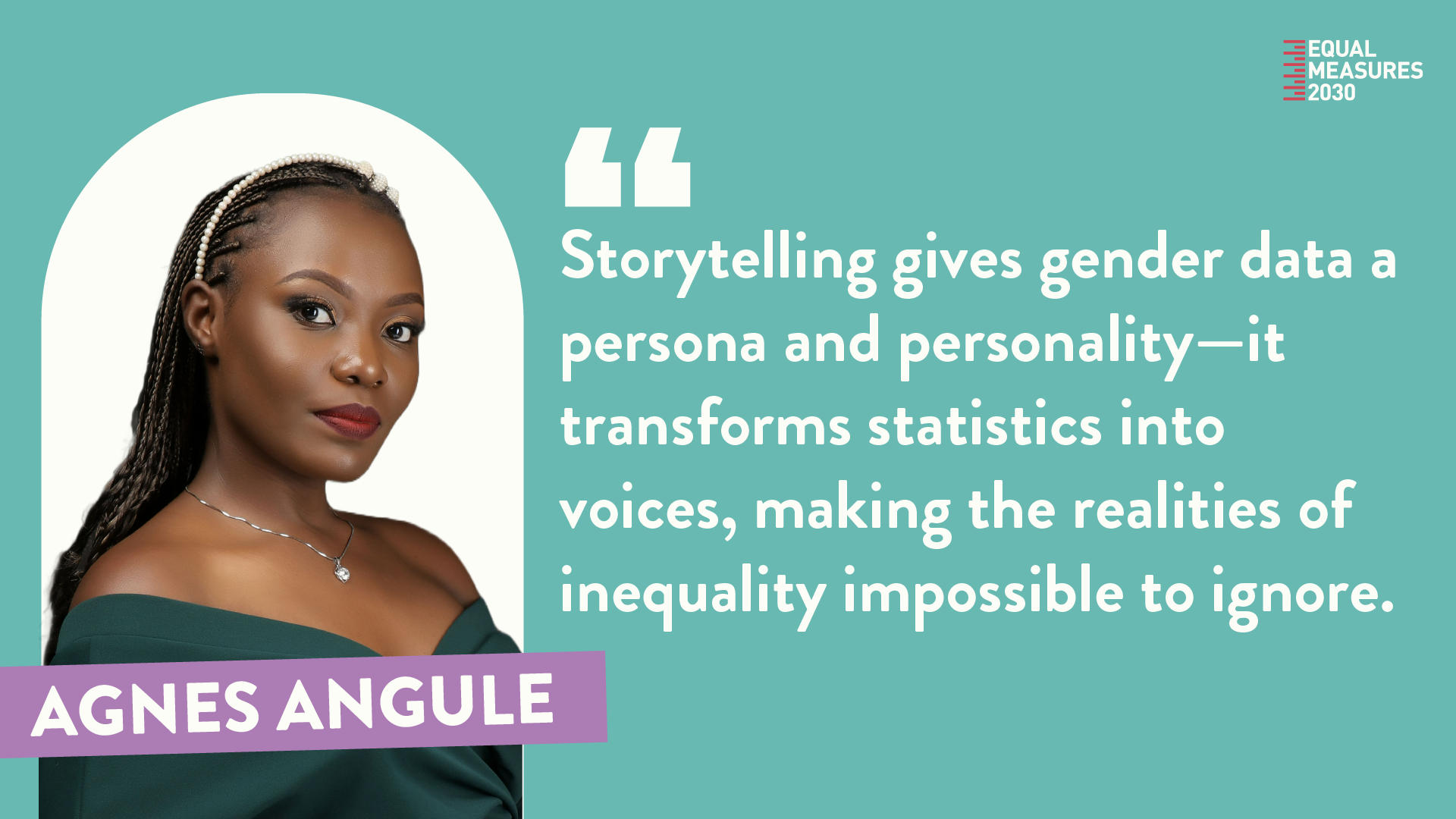
Amir Muhammad, Nigeria
In Nigeria’s 10th Assembly, women occupy only 2.7% of Senate seats and 4.7% of House of Representatives seats, accounting for a mere 4.2% of the entire legislature of 469 people – a figure that has remained significantly below global averages for years. This under-representation is not attached to Nigeria only; across Africa, women continue to face systemic barriers to political participation, particularly in policymaking and governance.
During the fellowship, I will focus on advocating for political gender quotas in Nigeria and across Africa. Using the SDG Gender Index and other data sources, I will create blogs, podcasts, data visualisations, social media campaigns, and short videos to highlight the challenges women face in political representation and the urgent need for policies that encourage their participation.
My goal is to actually influence policy discussions and drive reforms that promote gender-inclusive politics across Africa.
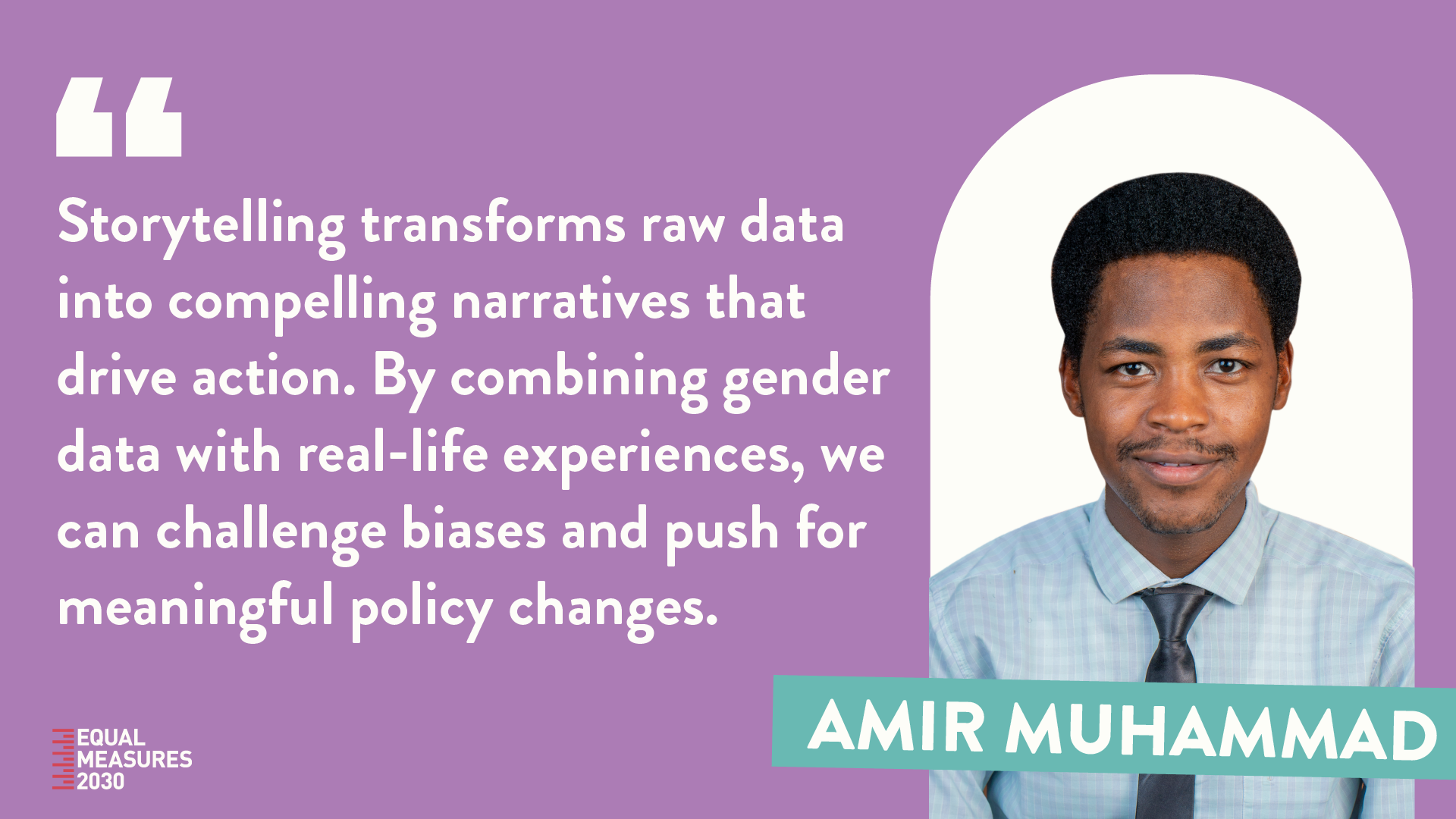
Frida Alejandra Ibarra Zavaleta, Mexico
During the fellowship, I aim to explore the intersection of gender data and education in rural communities, particularly focusing on how data can highlight and address systemic barriers faced by women and girls in accessing opportunities. My goal is to use storytelling to amplify these issues and advocate for policy changes that promote inclusivity and empowerment.
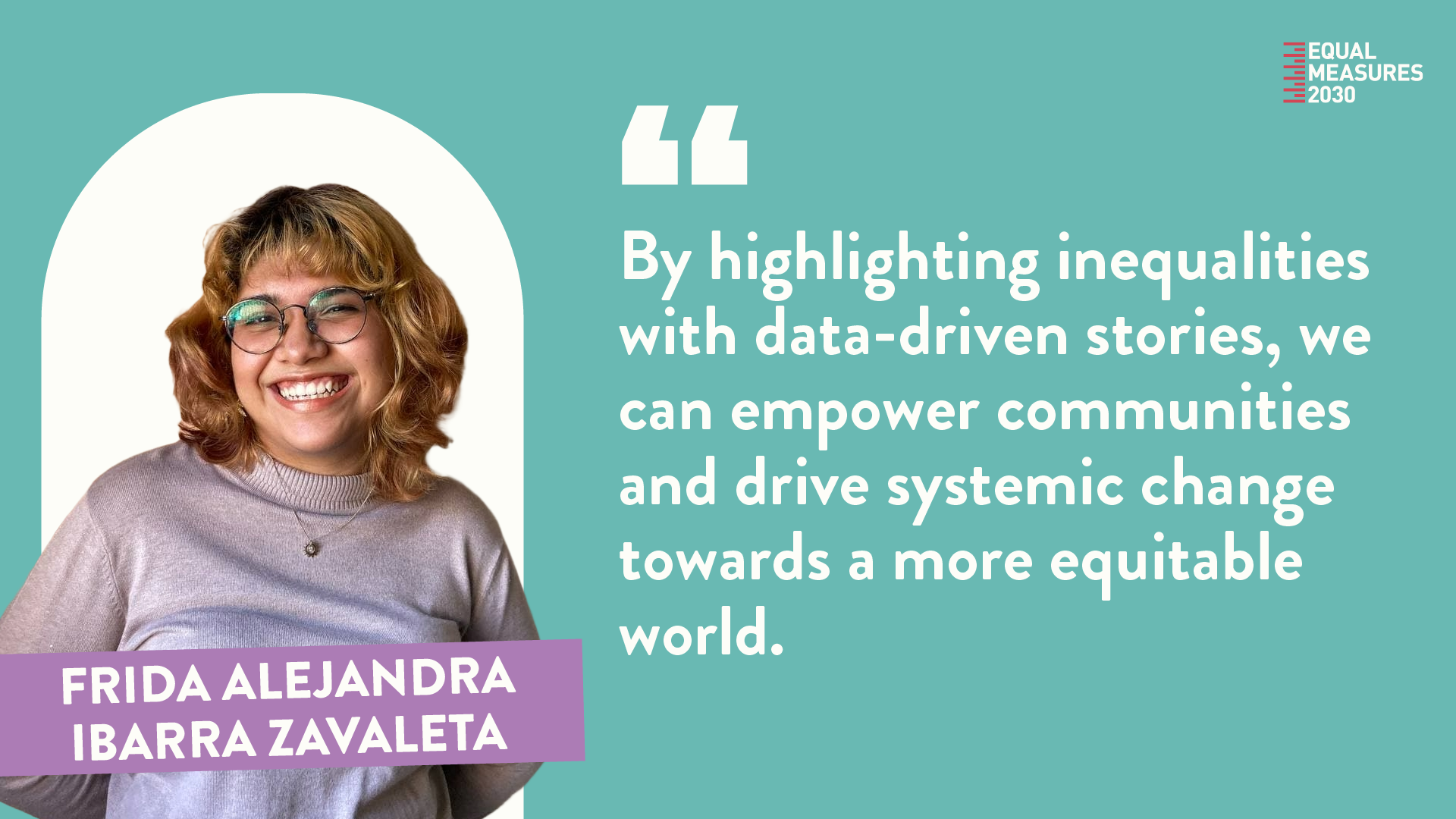
Grecia Alessandra Flores Hinostroza, Peru
During the fellowship, I aim to explore how gender data can shape policies that promote equality in international diplomacy. My focus will be on amplifying the voices of women in decision-making spaces and using storytelling as a tool to highlight systemic barriers and opportunities for change.
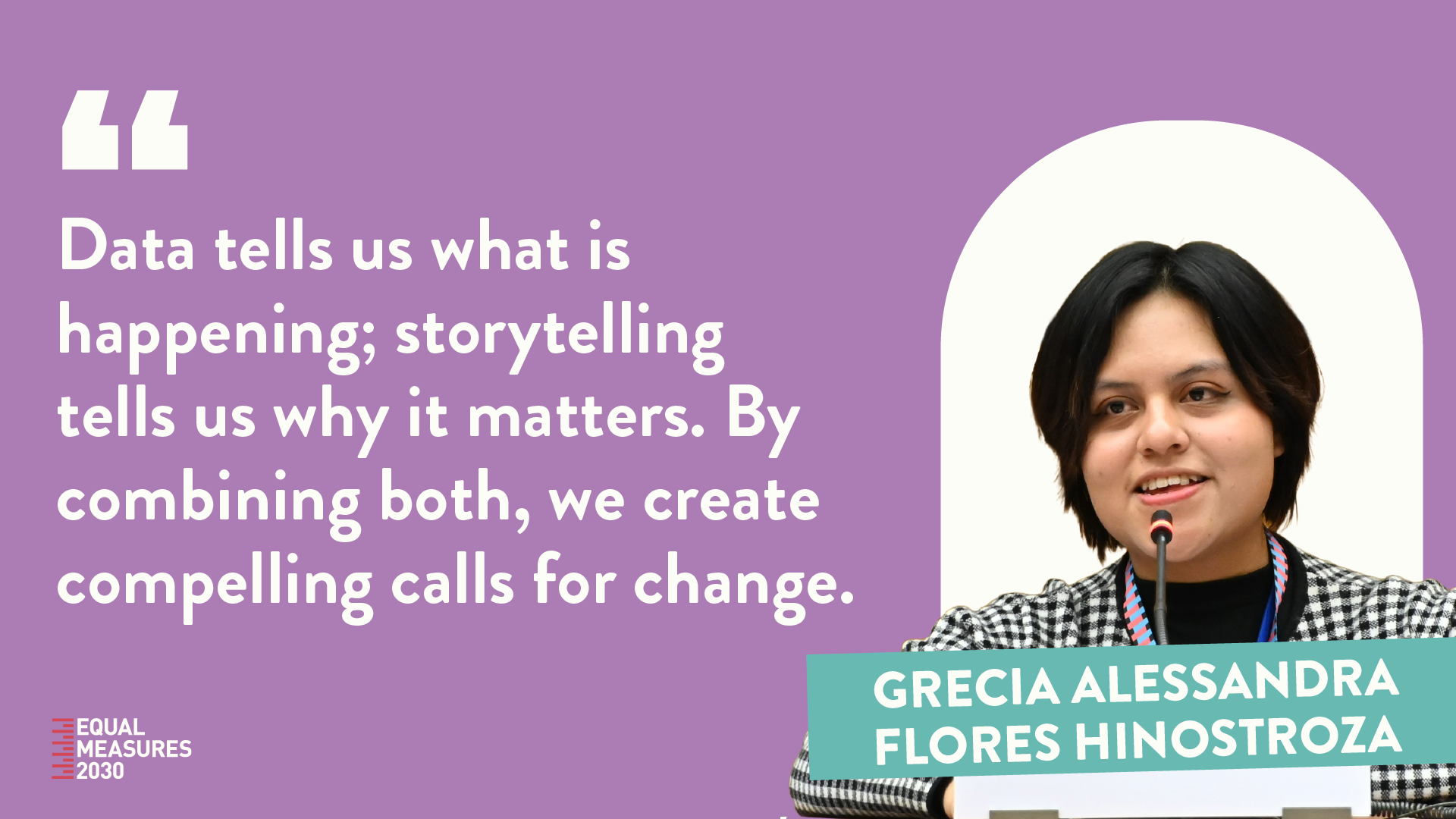
Mahpara Zulqadar, Pakistan
During the fellowship, I will explore the impact of child marriage in South Punjab, using storytelling to highlight its consequences on girls’ education, health, and future opportunities. By integrating SDG Gender Index data with real-life narratives, I aim to show the scale of the problem and advocate for stronger protections for girls. My goal is to spark policy discussions and community awareness to reduce child marriage rates and promote girls’ rights.
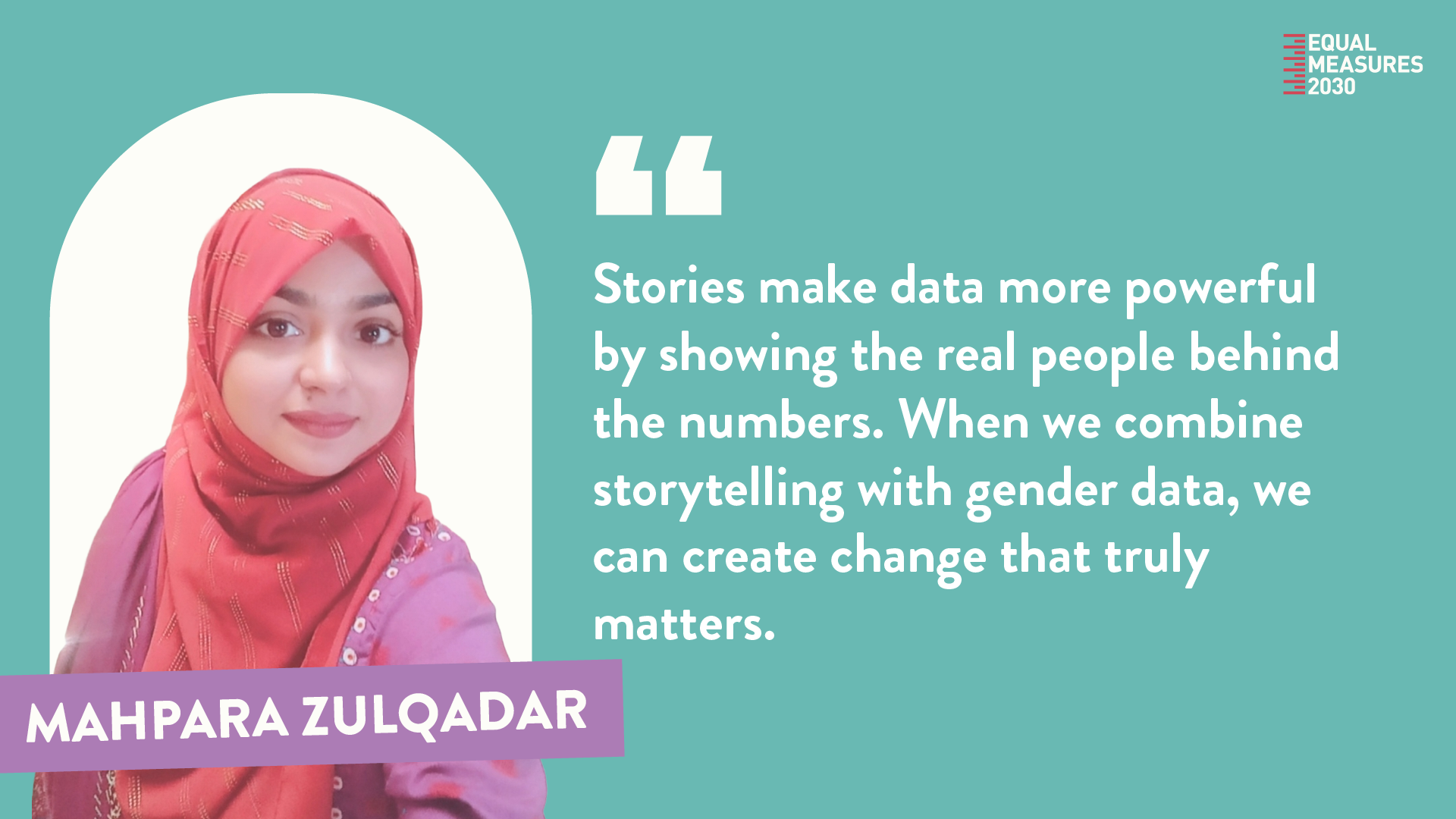
Shaunei Gerber, South Africa
I am looking forward to learning how to use gender data to amplify the voices of women political leaders in Africa and showcase their challenges and impact. Through a mix of data analytics and people-centred storytelling, I want to create compelling stories that drive policy reform, public engagement, and enhanced institutional support for women leaders.
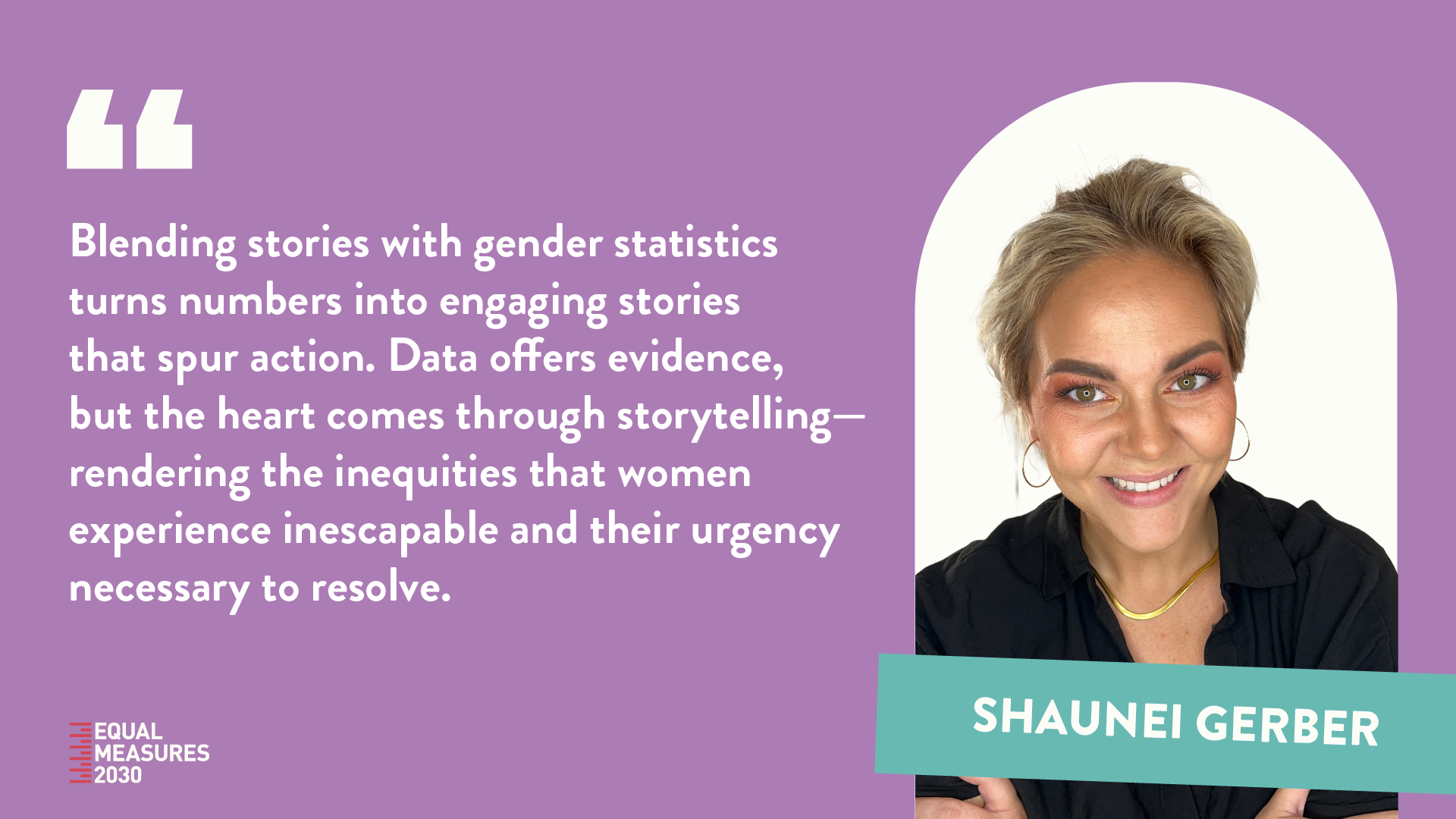
Taieba Hosne Ishrat, Bangladesh
I’ve spent years measuring impact—analyzing policies, assessing interventions, and identifying gaps. Yet behind each data point on gender-based violence, there’s a life shaped by suffering and silence. During this fellowship, I will develop an interactive dashboard to visualize intimate partner violence (IPV) across South Asia in a way that goes beyond numbers. This project will highlight systemic failures and call attention to the lives that have been left behind—demanding the urgent policy changes needed to protect them.
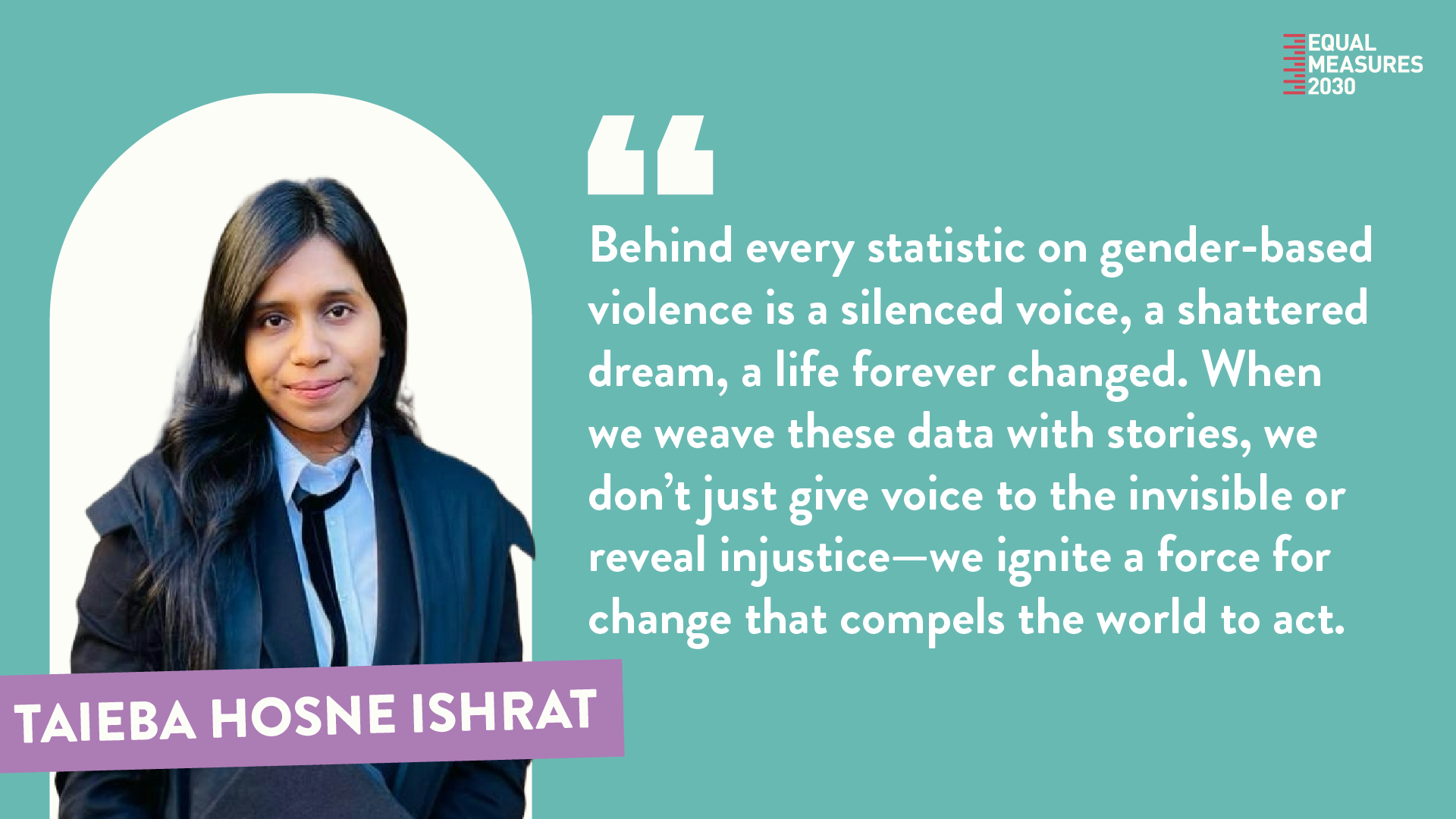
Thiripurasundari Thiyagarajan, India
During the fellowship, I aim to leverage gender data to highlight the intersection of gender, social inclusion, and economic justice, particularly for marginalized communities. My focus will be on transforming complex data into compelling narratives that drive inclusive policies and programs. A key priority is reaching underserved populations by utilizing social media as a strategic advocacy tool to amplify voices, enhance awareness, and mobilize action. Additionally, I seek to simplify data without losing its depth, ensuring that key insights and nuances are accessible to diverse audiences. Through mentorship and collaboration, I hope to refine my skills in data storytelling and visualization, making gender data a more effective catalyst for systemic change.
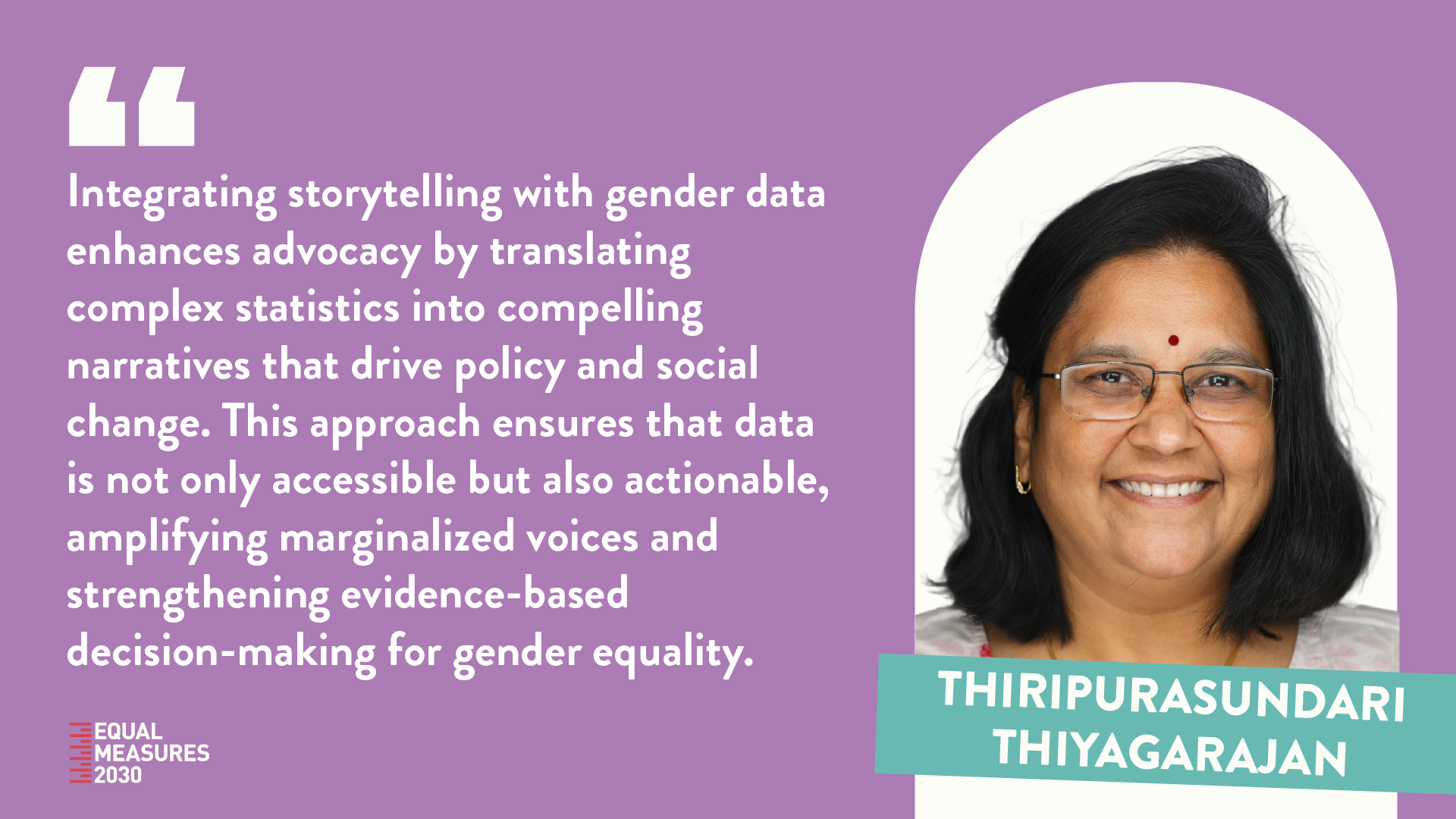
Yara Elshennawy, Egypt
I am hoping to sharpen my experience in visual storytelling (videos, illustrations, etc), and to gain a better ability to be able to conceptualize thematic content in a visual manner. Also, I am hoping I can be better at the utilization of different forms of social media.
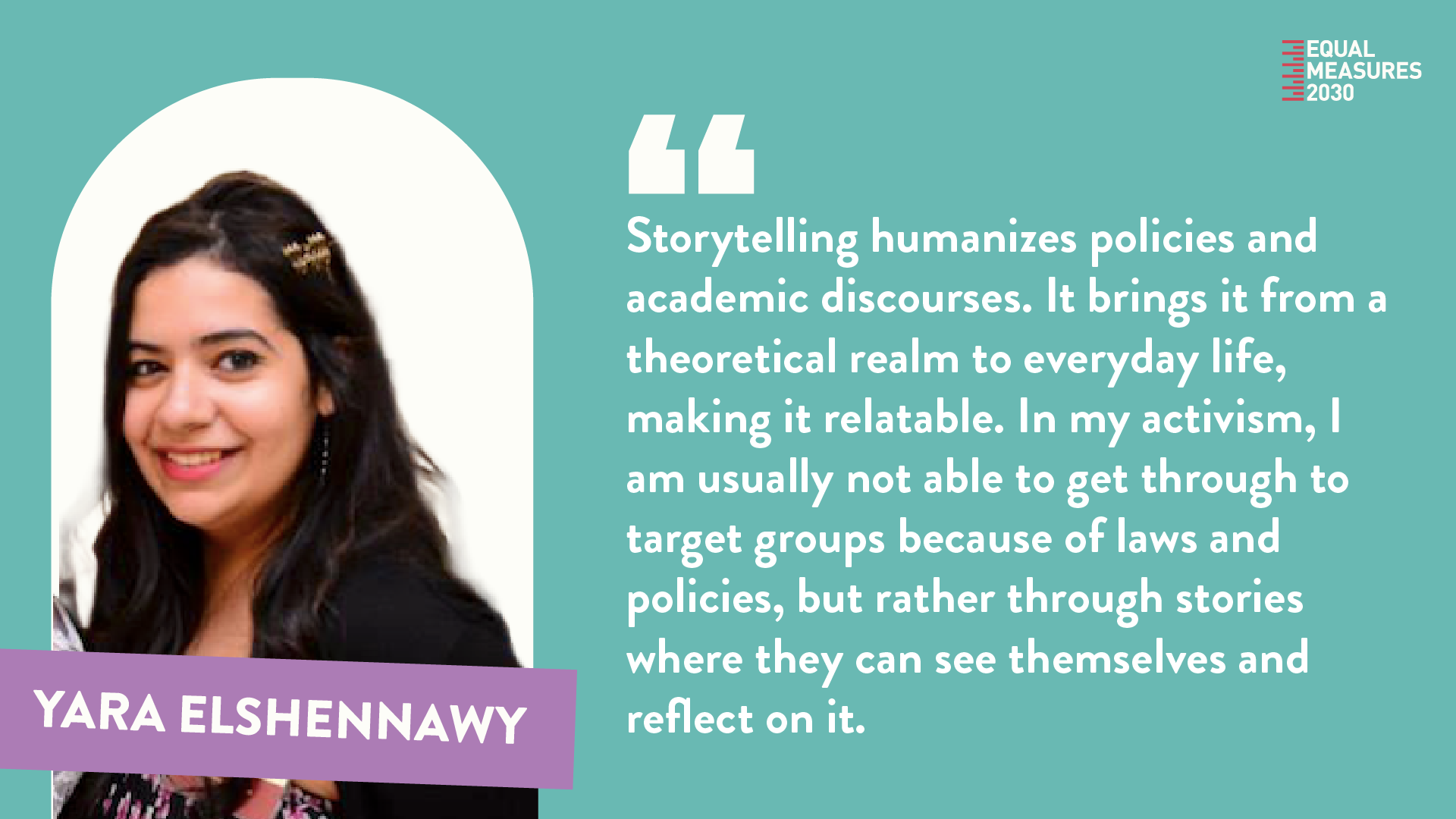
Yarely Madrid, Honduras
This scholarship is important to me because I hope to learn more about gender equity, improve my knowledge of data journalism, and create content that contributes to society, educates, and creates change.
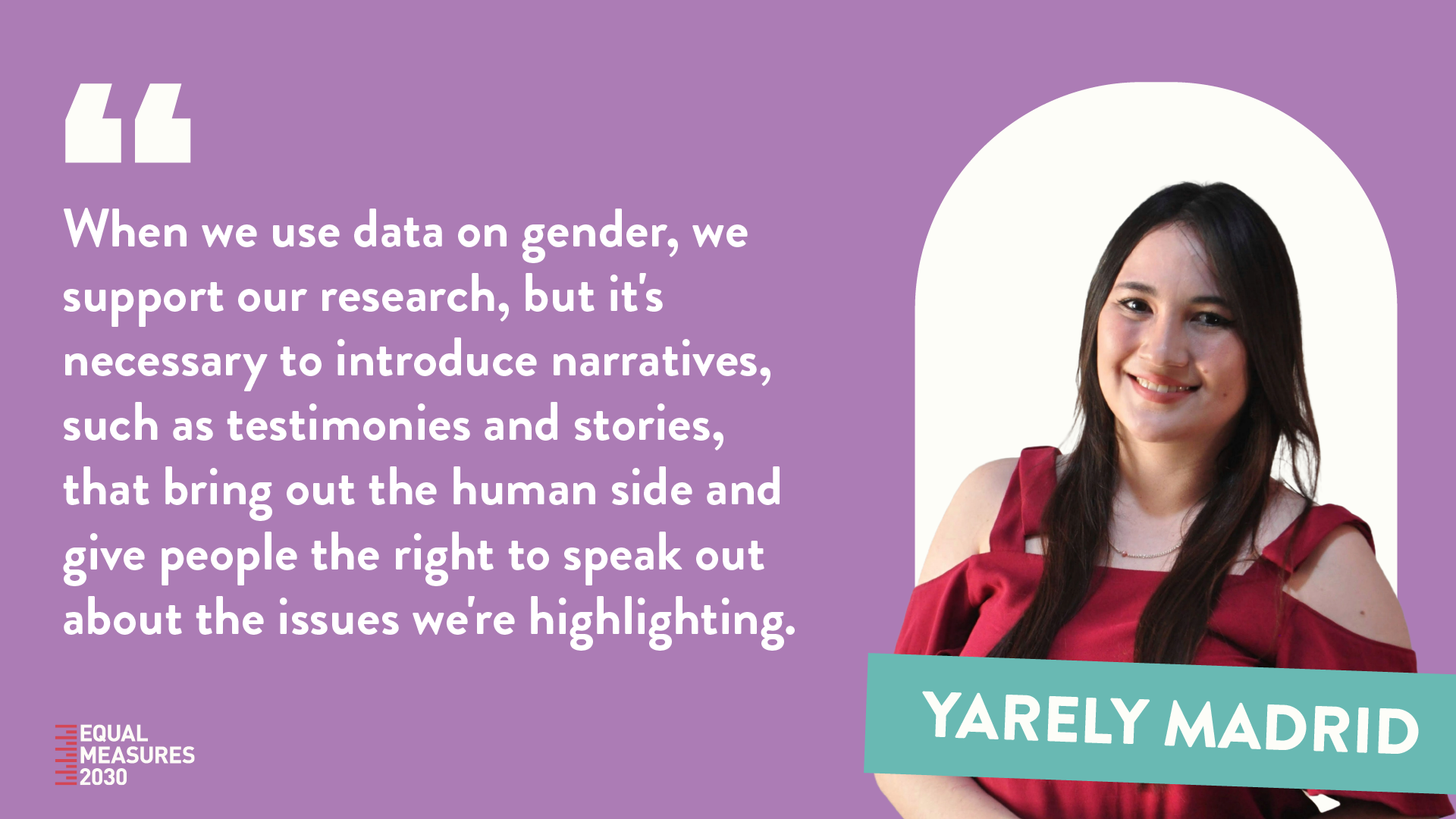
We can’t wait to see the powerful stories these fellows create, and we hope you’re just as excited to follow their journey. Stay connected with us—follow along on social media and subscribe to our newsletter for updates throughout the fellowship and a first look at their final projects.
Learn more about the fellowship here: https://equalmeasures2030.org/2025-storytelling-with-data-fellowship/



